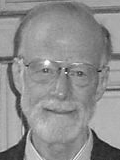|
|
|
<<< Previous speaker
|
next speaker >>>
|
Tony Hoare, Inventor of QuickSort, Turing Award Winner

Sir Charles Antony Richard Hoare (Tony Hoare or C.A.R. Hoare, born January 11, 1934) is a British computer scientist, probably best known for the development in 1960 of Quicksort (or Hoaresort), one of the world's most widely used sorting algorithms.
He also developed Hoare logic for verifying program correctness, and the formal language Communicating Sequential Processes (CSP) used to specify the interactions of concurrent processes (including the Dining philosophers problem) and the inspiration for the Occam programming language.
|
Presentation: "Opening Keynote: The Science of Computing and the Engineering of Software"
Time:
Wednesday 09:00 - 10:00
Location:
Fleming Room
Abstract: Tony Hoare has devoted his academic research life (1968 - 1999) to the purer
aspects of the science of computer programming. Then he moved to Microsoft
research, and has seen some of his scientific discoveries transferred into
software engineering tools, and used routinely in programming practice.
He will speculate on the prospects of division of labour between academic
research and industrial developments, leading to further progress of the
science of computing and its exploitation in engineering practice.
Presentation: "Null References: The Billion Dollar Mistake"
Time:
Friday 13:00 - 14:00
Location:
Abbey Room
Abstract: I call it my billion-dollar mistake. It was the invention of the null
reference in 1965. At that time, I was designing the first comprehensive
type system for references in an object oriented language (ALGOL W). My
goal was to ensure that all use of references should be absolutely safe,
with checking performed automatically by the compiler. But I couldn't
resist the temptation to put in a null reference, simply because it was so
easy to implement. This has led to innumerable errors, vulnerabilities, and
system crashes, which have probably caused a billion
dollars of pain and damage in the last forty years.
In recent years, a number of program analysers like PREfix and PREfast in
Microsoft have been used to check references, and give warnings if there is
a risk they may be non-null. More recent programming languages like Spec#
have introduced declarations for non-null references. This is the solution,
which I rejected in 1965.
Presentation: "Parallel computing"
Time:
Friday 14:15 - 15:15
Location:
Fleet Room
Abstract: Sadek Drobi interviewing Tony Hoare
|
 |
| |




